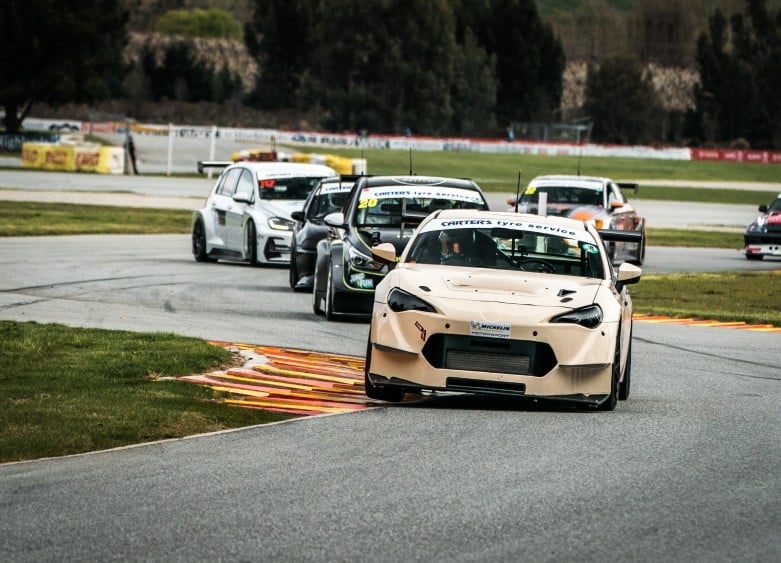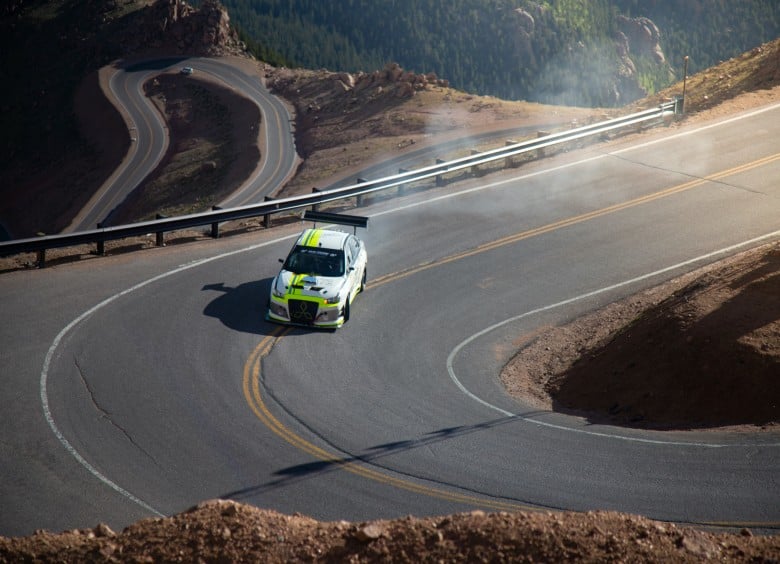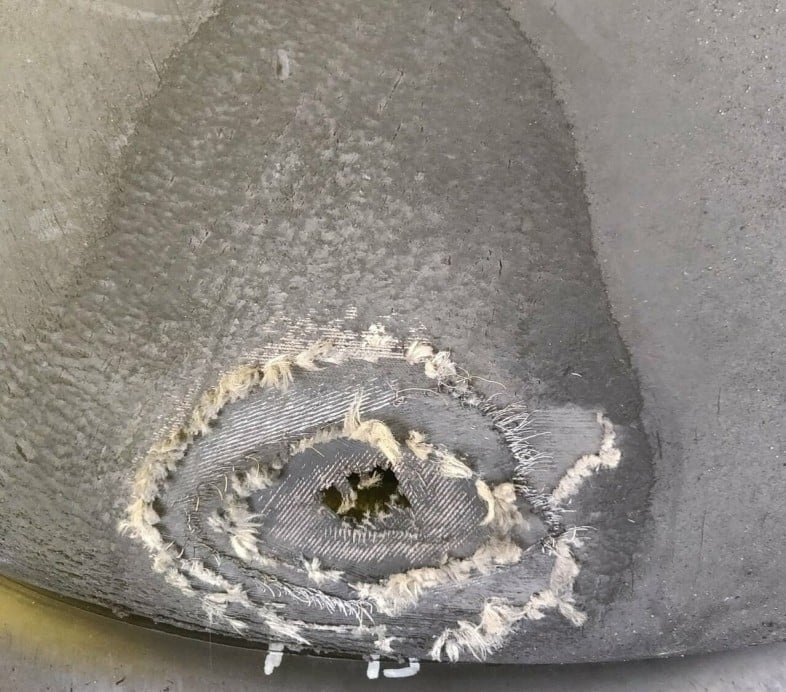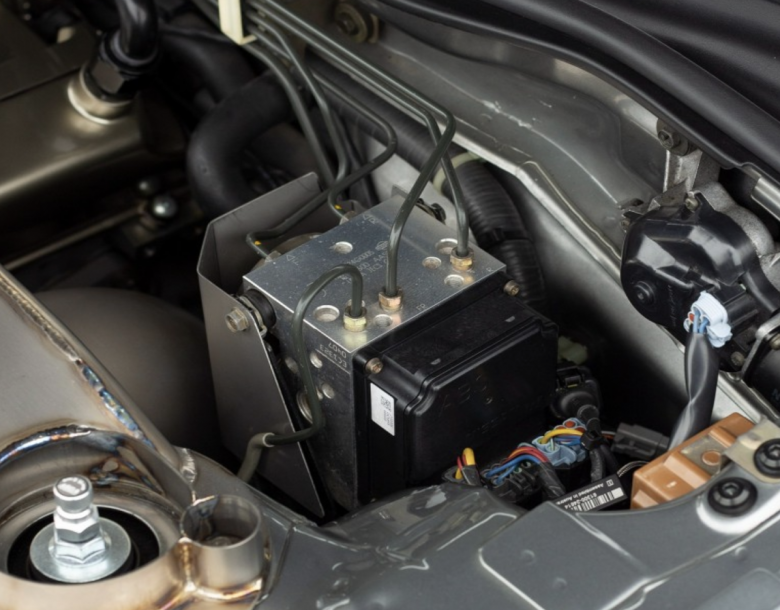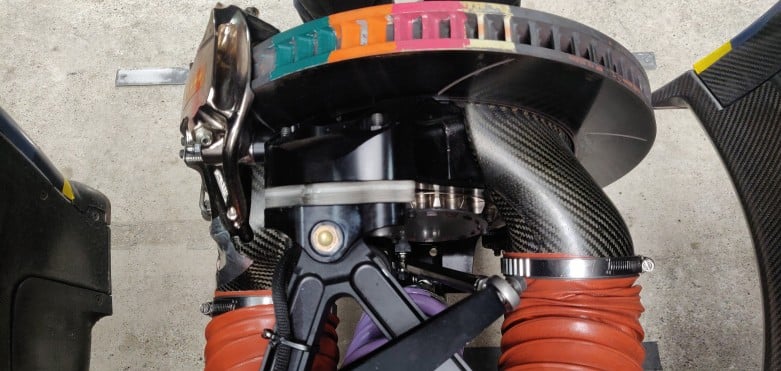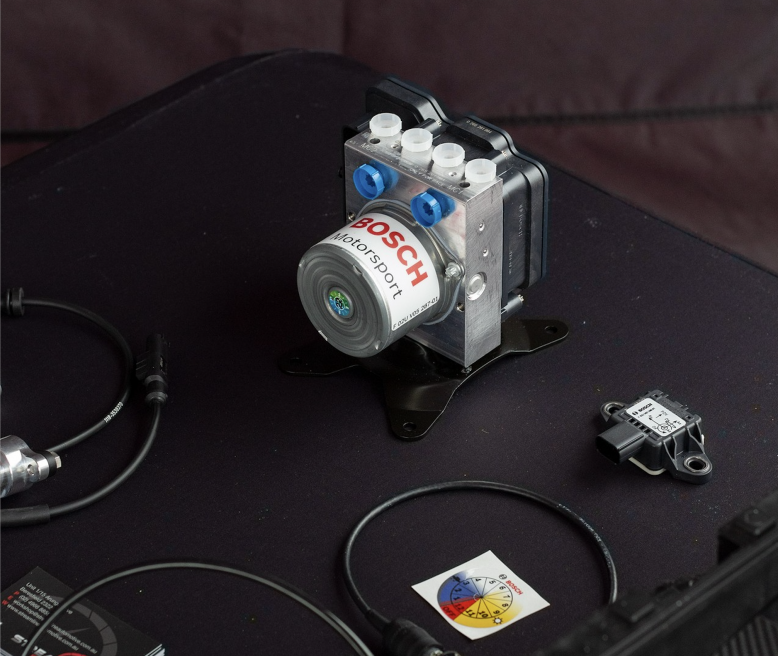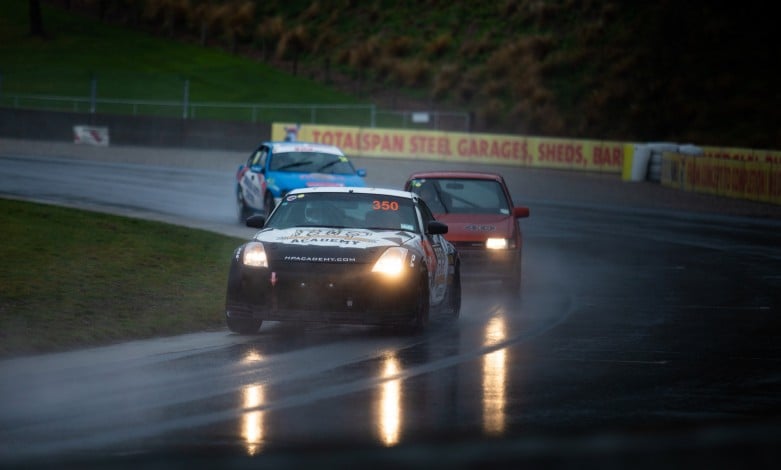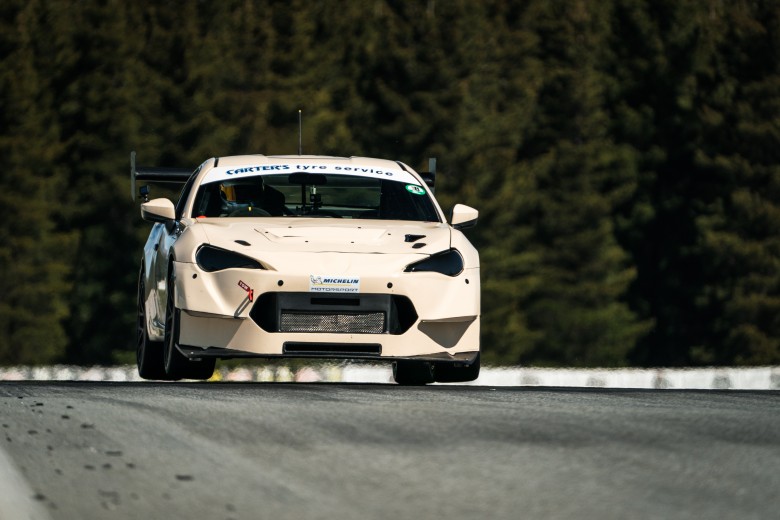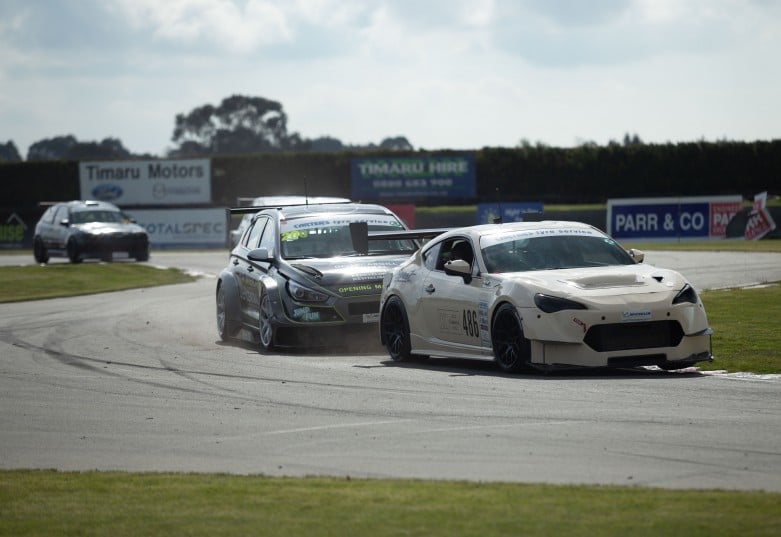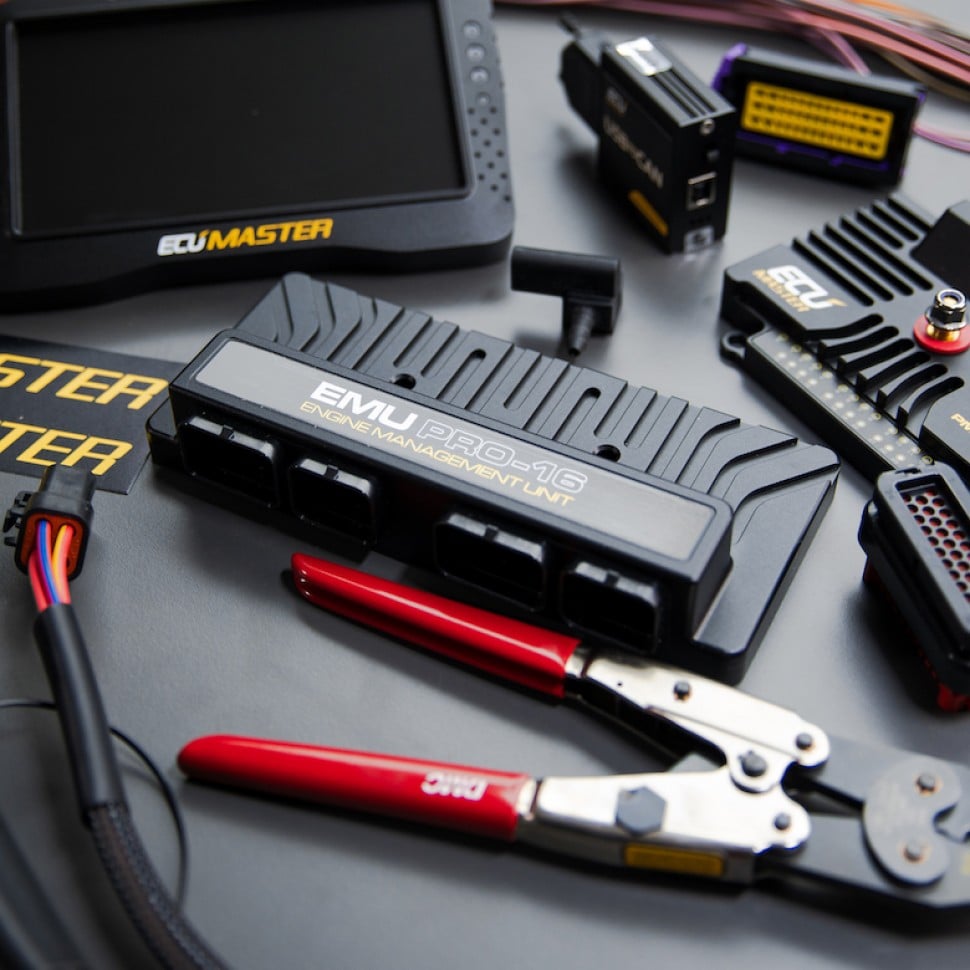Bosch Motorsport ABS: Can It Actually Stop a Car Faster? We Did the Test No One Else Has
Aftermarket ABS systems and users often promote as much as a 2-second lap time improvement, but those claims are meaningless to the rest of us without identical cars, tracks and conditions right? What we really wanted to know which is easier for us all to relate to: Does motorsport ABS dramatically reduce stopping distance?
We've searched for credible data and found nothing. So the team have installed a Bosch M5 Clubsport system on a modified GT86 to find out. The result? Geniunely surprising!
In this article: Why This Test Matters | Common Objections | Technical Background | Road Car vs Motorsport ABS | Baseline Test: Factory ABS | The Installation | Setup and Calibration | Real-World Experience | Results: Bosch ABS | Beyond the Numbers | Final Verdict
Why This Test Matters
For transparency, Bosch Motorsport Australia gave us one of their M5 Clubsport systems (normally $10,000 AUD / $6,500 USD / 817 Live Chickens) for this test. We made it clear upfront: we'd report our honest findings regardless of the outcome. The fact they accepted shows confidence in their product, understandable given its prevalence in GT3, GT World Challenge, and Asian Le Mans series.
What we wanted was objective data. Not only just subjective "feel" or anecdotal lap time improvements, but measurable, repeatable results that prove whether motorsport ABS easily delivers genuine performance gains.
Addressing Common Objections
Before we dive into data, let's address the two inevitable comments: "a good driver doesn't need ABS" and "ABS is cheating."
Can a Driver Out-Brake Motorsport ABS?
Simply put: no. Even Max Verstappen and Kalle Rovanperä can't consistently achieve absolute maximum braking in every zone, every lap, as conditions change, tyres degrade, and fuel load varies. The occasional lockups we see in F1 and WRC cars in ditches prove this. These are the world's best drivers, and they're human just like you.
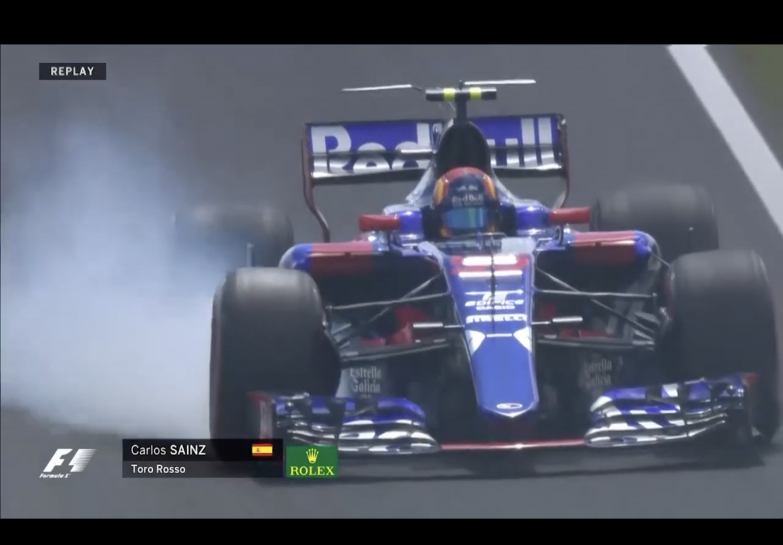
Is ABS Cheating?
ABS reduces driver skill requirements, similar to traction control or paddle shifters. Whether that's "cheating" is personal preference. These systems don't make racing easy, drivers aren't sipping tea while setting new records year after year as cars go faster and faster. For me, I'll take any advantage my racing class allows. You need to decide what's right for you and your chosen class of racing.
Technical Background: How ABS Works
Quick refresher: a tyre has finite grip for accelerating, turning, and braking. Exceed that grip under braking and the wheel locks, which causes three problems:
- Dramatically reduced braking force
- Loss of directional control
- Flat-spotted tyres (expensive and potentially dangerous)
Really though the key concept you need to understand is slip ratio. Maximum deceleration occurs with the tyre rotating slightly slower than vehicle speed, typically 5-10% slip depending on tyre and surface. Beyond this, braking force decreases until the wheel locks completely.
ABS keeps all four tyres near their optimal slip ratio for maximum braking performance.
Road Car ABS vs Motorsport ABS
Road Car/OEM ABS
Road car ABS prioritises stability and control for average drivers experiencing emergency braking rarely. Minimising stopping distance matters, but keeping the car stable while allowing steering input is paramount. Modified components (wheels, tyres, suspension, aero, big brake kits) can also compromise factory ABS calibration.
Motorsport/Aftermarket ABS
Motorsport ABS has one priority: minimum stopping distance. It assumes racing drivers can handle less stability under braking. These systems are calibrated to individual vehicles, like custom ECU tuning is for your engine. A 12-position switch allows real-time adjustment for different grip levels or complete deactivation. This accounts for fuel burn-off, tyre wear, and changing conditions, noting in circuit racing a car can lose kilograms/pounds of weight by burning fuel and wearing tyres, per lap.
In short: motorsport ABS is tuned to your car and maintains optimal slip ratio at each corner regardless of conditions.
Baseline Test: Factory ABS | 200 to 0 km/h
Before installation, we needed baseline data. Our test: measure stopping distance from 200 km/h to 0. While race cars rarely stop completely, this gives a tangible, comparable metric everyone understands.
Testing protocol:
- Five stops from 200 km/h
- Discard best and worst results
- Average the middle three
- Data logging throughout
Factory ABS result: 111.2 metres average
This matches a Porsche 992 GT3 or McLaren 750S, though somewhat underwhelming considering we ran full Michelin slicks versus their road tyres. The GT86's weight distribution, our brake setup, and stock ABS calibration likely explain why we weren't seeing more advantage from racing rubber.
OEM ABS benchmark established: 111.2 metres.
Installing the Bosch Motorsport M5 Clubsport Kit
Installation is substantial. We also upgraded to a PE Racing motorsport pedal box with independent master cylinders and balance bar for on-the-fly brake bias adjustment. You can adapt a factory master cylinder, but we wanted both upgrades simultaneously.
Installation requirements:
- Mount ABS unit
- Fabricate new brake lines
- Run the supplied harness
- Connect power, earth, sensors
- Integrate with MoTeC dash logger
- Standard fill and bleed
This is doable for home enthusiasts with proper tools for bending and flaring brake lines, but expect significant time investment. HPA's motorsport plumbing systems course covers this process in case you're keen to learn. Professional installation will add to total system cost and you'll need to factor that into your budget if you choose this path instead.
Setup and Calibration
After safety checks, we began system calibration. ABS unlocks locked wheels, but proper front-to-rear brake bias remains critical. The system is reactive, not predictive. This just means wheels must lock before ABS intervenes.
Too much rear bias: Instability as rears lock before fronts, while fronts aren't near their grip limit, reducing overall effectiveness.
Too much front bias: Stable but inefficient, as rears contribute little to deceleration.
The Bosch system reports hydraulic brake bias via CAN to your data logger, in our case a MoTeC C127 dash. This allows it to suggest optimal settings based on which wheels lock, eliminating the guesswork and streamlining the tuning process.
If you want to learn how to setup your own custom brake package and avoid causing some of the issues above due to poor part selection, HPA's Brake System Design and Optimization course covers all that and much more.
Driving Technique Changes
Before we get to our test, it's worth mentioning that motorsport ABS requires a different driving technique. Drivers without ABS experience typically use threshold braking, applying just enough pressure to keep tyres as close to the lockup threshold as they can.
This approach simply doesn't maximise a good ABS unit's performance. This is because the unit can reduce pressure but can't create it, so instead you need to supply significantly harder initial pedal application to provide pressure reserve. When ABS bleeds pressure and wheels rotate again, it can reapply pressure. At up to 40 cycles per second, this maintains optimal slip ratio.
The technique feels foreign: treat the brake pedal like a switch in heavy braking zones. Harder application lets the system work better. This doesn't apply to every brake application of course, smooth modulation for trail braking remains completely achievable with motorsport ABS.
First Real-World Track Bosch ABS Experience
The difference is staggering. At Highlands Motorsport Park, where we've completed hundreds of laps, the final corner leads onto the main straight: an awkward 90-degree first-gear left approached at 190 km/h.
With factory Toyota ABS: I braked one to two car lengths before the 100-metre marker.
With Bosch Motorsport ABS: I progressively moved my braking point later, convinced each time I'd run out of road. Each lap I braked too early and had to release before turn-in. By session end, I was braking a full car length past the marker—and still too early.
For perspective: my factory ABS braking point with the Bosch system would have sent me through the grass, over the tyre wall, and into a different postcode.

Results: Bosch ABS | 200 to 0 km/h
Full disclosure: we tested with as much consistency as possible, but this isn't a scientific journal submission. Same track, car, and driver, but not back-to-back same-day testing. I haven't seen anyone else attempt to quantify these results, so here's our data:
Testing protocol: Five stops from 200 km/h, discard outliers, average middle three.
Bosch ABS result: 92.8 metres average
Improvement: 18.4 metres (4.5 car lengths) = 17% reduction in stopping distance
I initially didn't believe it. The difference was repeatable within less than a metre. This magnitude of improvement can't be attributed to day-to-day variation, it's real and significant.
According to Supercar Lists' 200-0 braking rankings, this puts our GT86 in second place, ahead of a 2016 Praga R1 (94m) and 2023 Porsche GT3 RS (96m)—both on road-legal rubber—and well behind a 2001 Benetton F1 car (55m). I'm not convinced I have the neck muscles for that though.
Beyond the Numbers: Confidence and Consistency
Raw performance aside, the Bosch ABS delivers another crucial benefit: consistency.
With factory ABS, once every 20-30 laps I'd brake at my normal point into a specific corner, but the pedal would go rock solid and the car barely slowed, "ice mode." Terrifying. I'd lose seconds over following laps being conservative, unable to trust the brakes.
The Bosch ABS works identically every braking zone, every lap. Confidence is at an all-time high.
Final Verdict
The Bosch Motorsport ABS kit delivers exactly what it promises: genuine, measurable braking performance improvement.
Our results:
- 18.4 metres (4.5 car lengths) improvement
- 17% reduction in stopping distance
- Consistent, predictable performance
- Increased driver confidence
At $10,000 AUD ($6,500 USD), it's not the cheapest bolt-on performance upgrade. But as mentioned earlier, finding improvements of this magnitude is increasingly difficult as cars develop. When marginal gains become exponentially expensive, a 17% improvement in braking performance represents exceptional value.
Here's the other advantage: resale value. Unlike your engine build or that custom aero package, the Bosch ABS holds its value remarkably well. Better yet, it transfers between cars. Change platforms and take it with you. Rare for race parts, you can use it for years and still recover a substantial portion of your investment. Though realistically, once you've experienced this level of braking performance, you won't want to race without it.
I'm eager for our next race series to set new personal bests, and when we do, we'll report back with the difference this makes not just to stopping distance, but actual lap times.
